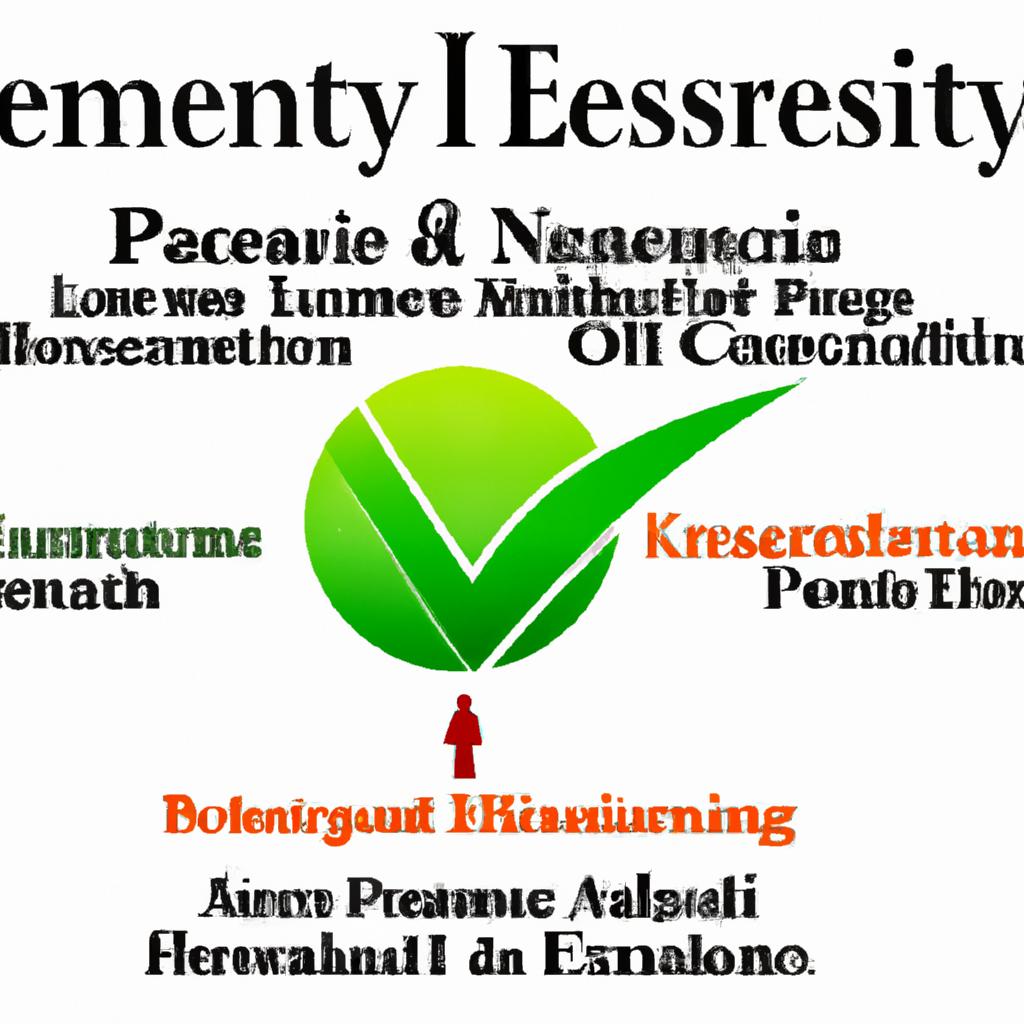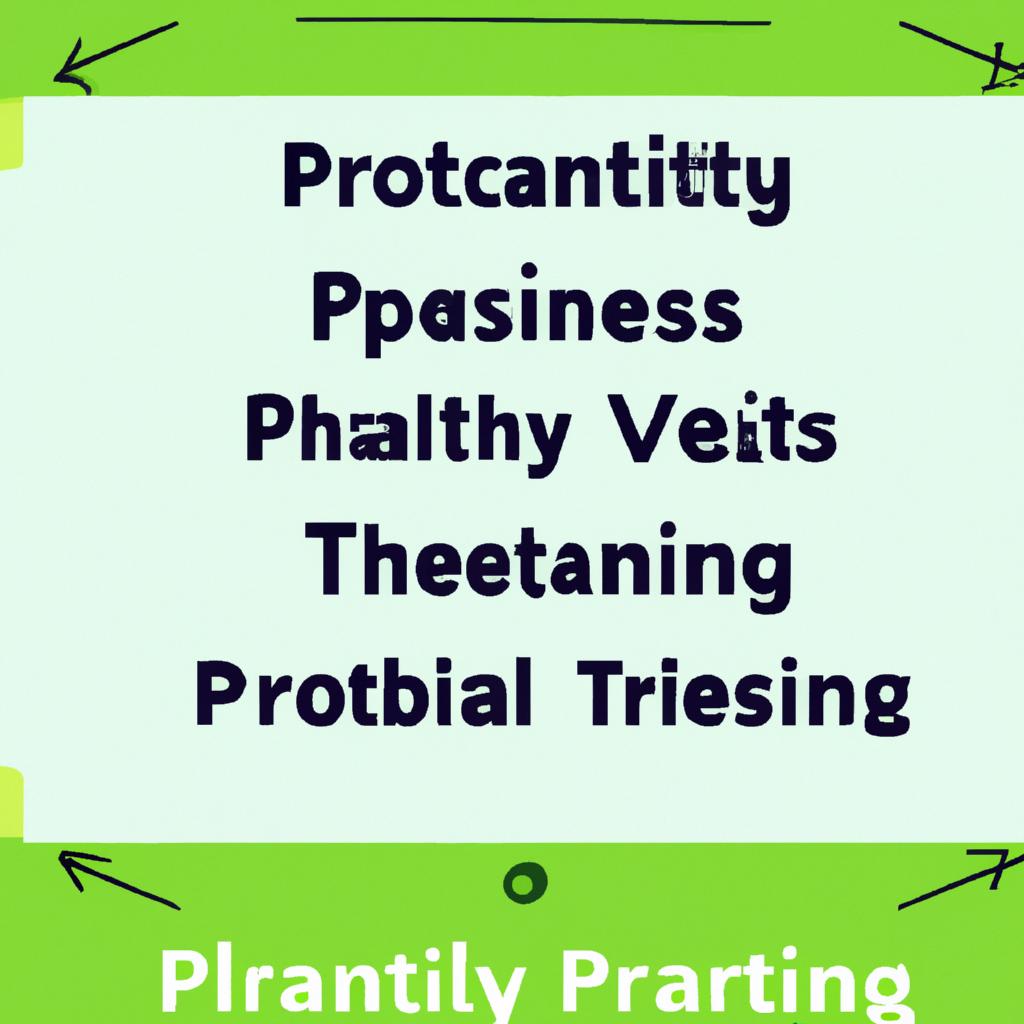Empower Your Health: How a Balanced Lifestyle Protects Against Chronic Diseases

In a world brimming with quick fixes and fast-paced living, the concept of a balanced lifestyle often takes a backseat. Yet, amidst the chaos of modern life, the importance of nurturing our health has never been more crucial. Chronic diseases, once viewed as distant concerns, have become prevalent adversaries that affect millions globally. However, the power to combat these challenges lies in our hands, waiting to be harnessed through the choices we make each day. This article explores the profound connection between a balanced lifestyle and our ability to stave off chronic illnesses, illuminating how simple changes in our daily habits can pave the way for a healthier future. Join us as we delve into the intricate web of nutrition, physical activity, mental well-being, and community engagement, unveiling the protective shield that a well-rounded approach to life can provide against the chronic diseases that threaten our well-being.
Understanding Chronic Diseases and Their Impact on Health
Chronic diseases, often defined as long-lasting conditions that require ongoing medical attention or limit daily activities, significantly affect millions of individuals worldwide. These diseases include heart disease, diabetes, and chronic respiratory disorders, among others. The impacts of chronic disease extend beyond physical health; they can create emotional and psychological burdens, affecting quality of life and social interactions. As the prevalence of these conditions continues to rise, understanding their roots and the lifestyle choices that influence their development becomes paramount.
Adopting a balanced lifestyle can serve as a powerful ally in combatting the onset of chronic diseases. Key aspects to focus on include:
- Nutrition: Emphasizing whole foods, such as fruits, vegetables, whole grains, and lean proteins.
- Physical Activity: Engaging in regular exercise, which can help maintain a healthy weight and improve cardiovascular health.
- Mental Well-Being: Incorporating stress-reducing practices, such as mindfulness and meditation.
- Regular Check-ups: Encouraging preventive healthcare measures to catch potential issues early.
| Lifestyle Factor | Impact on Health |
|---|---|
| Balanced Diet | Reduces risk factors for chronic diseases |
| Regular Exercise | Improves heart function and stamina |
| Adequate Sleep | Enhances immune function and mental clarity |
| Stress Management | Lowers blood pressure and promotes better mood |

Essential Components of a Balanced Lifestyle for Disease Prevention
Living a life rich in balance can dramatically reduce the risk of chronic diseases, making it essential to embrace certain core elements that support overall well-being. **Nutrition** is a pivotal component—prioritizing whole foods over processed options nourishes the body with essential vitamins, minerals, and antioxidants. Incorporating a variety of fruits, vegetables, whole grains, and healthy fats provides the necessary building blocks for a resilient immune system. Likewise, **hydration** cannot be overlooked; adequate water intake keeps bodily functions running smoothly and aids in the detoxification processes essential for health maintenance.
Another significant aspect lies in **physical activity**, which not only strengthens the body but also enhances mental health. Engaging in regular, moderate exercise—be it brisk walking, yoga, or strength training—has shown to lower risks of obesity, diabetes, and heart disease. Furthermore, **stress management** practices such as mindfulness, meditation, and adequate sleep pave the way for mental clarity and emotional resilience, ultimately leading to reduced inflammation and a bolstered immune response. Together, these elements create a harmonious lifestyle that empowers individuals to fend off chronic diseases and thrive.

Practical Strategies to Cultivate Healthy Habits and Enhance Well-Being
Embracing a balanced lifestyle requires intentionality and consistent effort. **Start small**; rather than overhauling your entire routine, focus on introducing one or two healthy habits each week. This could include drinking an extra glass of water daily or opting for a walk during lunch breaks. **Set achievable goals** that align with your lifestyle. Break larger objectives into manageable tasks, allowing for small wins that foster motivation and build momentum. Here are some effective strategies:
- Incorporate a variety of physical activities you enjoy, such as dancing, cycling, or hiking.
- Prioritize sleep by establishing a calming bedtime routine and creating a sleep-friendly environment.
- Mindfully plan meals that include a colorful range of fruits and vegetables.
- Practice stress reduction techniques, like meditation or deep breathing exercises, for at least a few minutes each day.
It’s essential to track your progress to see how far you’ve come. You might find that using a journal or an app helps maintain your commitment. Consider joining a community, either online or locally, that supports your goals. Engaging with others who share your interests can provide much-needed encouragement and accountability. Here’s a simple overview of various healthy habits and their benefits:
| Habit | Benefit |
|---|---|
| Regular Exercise | Boosts mood and energy levels |
| Balanced Diet | Improves immune function and energy |
| Mindfulness Meditation | Enhances focus and reduces anxiety |
| Consistent Sleep Schedule | Regulates mood and cognitive function |
Final Thoughts
In a world where the pace of life often obscures the importance of self-care, finding balance has never been more crucial. As we traverse the intricate landscape of health, it becomes evident that the choices we make each day can serve as a robust shield against chronic diseases. By embracing a holistic approach that nurtures both body and mind, we wield the power to transform our health narratives.
As we conclude our exploration of this vital topic, let us remember that the journey to wellness is not a race but a lifelong commitment to mindful living. Every step towards a balanced lifestyle—be it through nourishing food, regular physical activity, or cultivating positive relationships—contributes to our resilience against illness.
Empowering your health is about more than just avoiding disease; it is about enriching your life with vigor, vitality, and joy. So, take a moment, reflect on the practices that resonate with you, and dare to prioritize your well-being. After all, a balanced life is not merely a goal, but a pathway to a thriving existence. Let us embrace this journey together, armed with the knowledge that small, consistent choices can lead to profound transformations. Your health deserves it.





